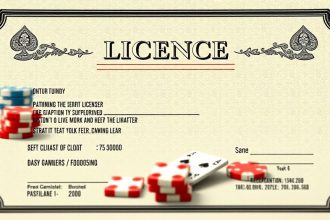Kenya’s online casino market, valued at KSh 120 billion in 2025, operates under the Betting Control and Licensing Board (BCLB), established by the Betting, Lotteries and Gaming Act of 1966 (Cap 131). The BCLB regulates all gambling activities, including online casinos, to ensure fairness, transparency, and player protection. By September 2025, the board oversees 40+ licensed operators, with a focus on combating illegal platforms and promoting responsible gambling. This article details the core BCLB regulations for online casinos, covering licensing, operational standards, player safeguards, and enforcement, emphasizing their role in Kenya’s digital gambling ecosystem.
Licensing Requirements
Operators must obtain a BCLB license to offer online casino services legally. Key criteria include:
- Application Process: Submit audited financials, proof of KSh 50 million capital, and a business plan outlining game offerings and AML compliance. Fees are KSh 500,000 (application) and KSh 1 million (annual renewal).
- Local Presence: Operators require a registered Kenyan entity or partnership with a local firm. Foreign operators like Bet365 partner with local stakeholders to comply.
- Taxation: Operators pay 15% tax on gross gaming revenue (GGR) and 20% corporate tax, with 2024 collections reaching KSh 18 billion. Player winnings are tax-free for recreational gamblers.
- Game Approval: All games (slots, table games) must use RNGs certified by labs like GLI, ensuring 92-98% RTP. Live dealer games require real-time audits.
Licenses are listed on the BCLB’s public register, accessible via their website, with 90% of applications processed within 60 days in 2025.
Operational Standards
BCLB enforces strict operational rules to maintain integrity:
- Payment Systems: Support for M-Pesa (90% of transactions), Airtel Money, and bank cards, with minimum deposits of KSh 10 and withdrawals processed within 48 hours (max KSh 500,000 weekly).
- KYC/AML Compliance: Mandatory ID verification (e.g., national ID) for accounts and transactions over KSh 15,000 to prevent fraud and money laundering. Blockchain-based casinos must log crypto transactions.
- Data Security: Platforms use SSL/TLS 1.3 encryption and comply with Kenya’s Data Protection Act 2019 for user data. Breaches incur fines up to KSh 5 million.
- Advertising Restrictions: No ads targeting minors or vulnerable groups. Platforms must display responsible gambling warnings, with 2025 updates banning social media promotions during school hours.
Non-compliance risks license suspension or fines up to KSh 3 million, as seen in three revocations in 2024 for AML violations.
Player Protection Measures
BCLB prioritizes responsible gambling, with mandatory tools:
- Limits and Self-Exclusion: Players can set deposit (KSh 100-1,000 daily), loss, or session time limits. Self-exclusion periods range from 1 month to 5 years, linked to a national database.
- Problem Gambling Support: Operators fund helplines like GamblingCare Kenya and display warnings. AI-driven monitoring flags excessive play (e.g., >5 hours daily), used by 80% of platforms in 2025.
- Age Verification: Strict checks ensure players are 18+, with KYC rejecting underage accounts within 24 hours.
These measures reduced problem gambling incidents by 10% from 2023 to 2024, per BCLB reports.
Enforcement and Challenges
The BCLB collaborates with ISPs to geoblock unlicensed sites, with 50+ domains blocked in 2024. Fines for illegal operators reach KSh 10 million, and players using such sites risk account freezes. Challenges include offshore platforms evading blocks, attracting 30% of players with higher bonuses, and limited enforcement resources, with only 20 inspectors for 1,000+ betting outlets.
BCLB regulations ensure a secure, fair online casino environment in Kenya. Players should verify licenses on the BCLB register, use responsible gambling tools like KSh 100 daily limits, and stick to platforms like Betika for safe play in 2025’s regulated market.








